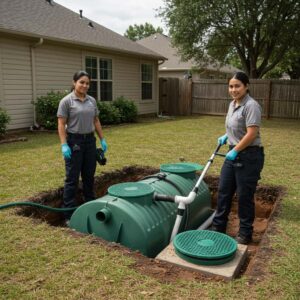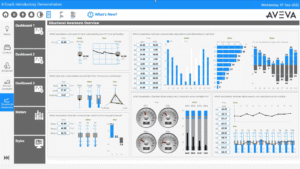Dubai is a global hub for trade, especially in the food sector. Whether you want to supply fresh vegetables from UAE farms or import exotic products from around the world, having the right business license is essential. One of the most popular options for starting a food-related business in the emirate is the Foodstuff Trading License in Dubai. But what does this license really allow you to do?
This article will give you a complete understanding of what your Foodstuff Trading License covers when it comes to local and imported food products. We’ll also look at key considerations like approvals, compliance, and storage, so you can run your business smoothly and legally.
What Is a Foodstuff Trading License in Dubai?
A Foodstuff Trading License in Dubai is issued by the Department of Economic Development (DED). It allows businesses to trade a wide range of food products within the UAE and internationally.
This license enables you to:
- Buy and sell food items such as grains, pulses, packaged food, beverages, fruits, vegetables, and meat.
- Import food products into the UAE from international suppliers.
- Distribute local food items to supermarkets, restaurants, or wholesalers.
- Re-export foodstuff to other countries, if needed.
However, even though the license provides broad authority, businesses must follow food safety laws set by the Dubai Municipality and other regulatory bodies.
Local Food Trading Activities Covered
When you trade local food, you are working with food items produced within the UAE. This includes:
- Fruits and vegetables from UAE farms
- Dairy products made in local factories
- Packaged snacks, bottled drinks, and canned goods produced in the region
- Meat from UAE-approved slaughterhouses
Under your Foodstuff Trading License in Dubai, you can:
- Purchase bulk quantities of local food items from manufacturers and farms
- Distribute these items to grocery stores, food markets, and hotels
- Sell them directly through retail outlets, online platforms, or wholesale networks
Key Compliance for Local Food Trading
Even with local sourcing, you must:
- Register your product labels with Dubai Municipality
- Ensure all storage and transport conditions meet health regulations (e.g., temperature control)
- Keep records of supplier sources for traceability
Businesses involved in organic or halal food must also get certification from the relevant authorities.
Import Food Trading Activities Covered
Importing food into Dubai opens more opportunities. You can import:
- Niche or ethnic food products from specific countries
- International packaged brands
- Seafood, cheeses, or frozen food not produced in the UAE
Your Foodstuff Trading License in Dubai allows you to:
- Import food items from approved countries
- Clear food shipments through Dubai Customs
- Store imported items in warehouses that meet food safety standards
- Distribute them through local and regional supply chains
Steps to Import Food Under This License
- Register Your Company with Dubai Customs
- You’ll need a valid trade license and a company code.
- Register the Food Product with Dubai Municipality (Montaji System)
- Each food item must be registered and approved before entering the local market.
- Get Import Permits
- For certain items like meat or dairy, you may need additional permits from the Ministry of Climate Change and Environment.
- Label Compliance
- All labels must be in Arabic and English and include ingredients, expiry dates, and nutritional info.
- Clear Customs
- Submit required documents such as invoice, packing list, certificate of origin, and health certificates.
- Food Inspection
- Food Control Department will check the safety and compliance of products before release.
Categories of Food Products Allowed
Your license typically covers the following categories unless otherwise restricted:
1. Dry Food Products
- Rice, flour, lentils, sugar
- Spices, coffee, tea
2. Packaged Goods
- Ready-to-eat snacks
- Canned and bottled food
3. Beverages (Non-Alcoholic)
- Soft drinks
- Juices and water
4. Frozen and Refrigerated Food
- Ice cream, frozen vegetables, frozen meat
5. Health and Organic Food
- Requires additional certifications
Note: Alcoholic beverages, supplements, or medical-grade food products are not covered under a regular foodstuff license.
Warehouse and Storage Requirements
Whether trading local or imported food, your storage facilities must follow strict rules:
- Food-grade storage units
- Temperature-controlled environments for perishable goods
- Regular pest control measures
- Clean and ventilated conditions
- Documentation for food traceability and expiry tracking
You may also be required to submit warehouse details for inspection and registration with Dubai Municipality.
Key Approvals and Registrations
Having a Foodstuff Trading License in Dubai is just the first step. To legally operate, the following approvals may be required:
|
Requirement |
Authority |
|
Food Label Approval |
Dubai Municipality |
|
Import Permit |
Ministry of Climate Change and Environment |
|
Warehouse Registration |
Dubai Municipality |
|
Halal Certification (if applicable) |
ESMA |
|
Product Registration |
Montaji System |
|
Customs Registration |
Dubai Customs |
Failing to comply with these requirements can result in fines, product seizures, or suspension of your trade license.
Mainland vs Free Zone for Food Trading
You can get your foodstuff license either in mainland Dubai or in a free zone, depending on your business model.
Mainland (DED License)
- Sell directly in the UAE market
- Trade with supermarkets, restaurants, hotels
- Requires local sponsor/shareholder (for non-UAE nationals)
- Office or warehouse lease in Dubai is mandatory
Free Zone (e.g., Dubai Multi Commodities Centre – DMCC, Dubai Airport Free Zone – DAFZA)
- 100% ownership for expats
- Import/export focus, not direct sales in UAE mainland
- Ideal for re-export businesses
- Limited to trading within the free zone or international markets unless a local distributor is appointed
Each option has pros and cons, and your choice should depend on your target market and trading model.
Cost of Getting a Foodstuff Trading License in Dubai
The cost can vary depending on several factors, including:
- Type of legal structure (LLC, sole establishment, free zone company)
- Location (mainland vs. free zone)
- Office/warehouse space requirements
- Additional approvals or permits needed
On average, starting costs range from AED 12,000 to AED 25,000, excluding warehousing or customs registration.
You may also need to budget for:
- Visa processing for employees
- Food safety training
- Product registration fees
- Transportation vehicles (if you handle delivery)
Responsibilities of a Foodstuff Trader in Dubai
When holding a Foodstuff Trading License in Dubai, you are responsible for:
- Following food safety standards
- Ensuring quality and hygiene during storage and transport
- Maintaining up-to-date approvals and licenses
- Keeping documentation for all imports, deliveries, and suppliers
- Reporting any unsafe or recalled products
The Food Control Department conducts random inspections, so maintaining compliance is essential to avoid penalties.
A Practical Note on Scaling Your Food Business
Once you establish your local or import food trading operations, you may look at scaling through:
- Creating a private label
- Launching an eCommerce platform
- Setting up franchises or retail outlets
- Exporting to GCC countries or Africa
Make sure to update your license scope and add activities if you expand into food processing, packaging, or catering.
What Your License Truly Enables
Your Foodstuff Trading License in Dubai is a powerful tool for entering the booming food market in the UAE and beyond. It gives you the legal right to:
- Trade local and imported food items
- Work with both retail and wholesale clients
- Set up supply chains for food distribution in the UAE
However, to fully benefit from the license, you must:
- Maintain food safety compliance
- Obtain all necessary approvals and certifications
- Choose the right location and legal structure
With the correct approach, your license can serve as the foundation for a successful, scalable food trading business in Dubai’s competitive market.
Helping You Stay Compliant While Growing
Understanding what your license covers is not just about legal compliance—it’s about building a trustworthy business. Customers, regulators, and partners will rely on your commitment to quality and safety. By following the proper guidelines and using the Foodstuff Trading License in Dubai to its full potential, you can confidently build a brand that lasts in this fast-growing industry.
- Local vs Import Food Trading: What Your Dubai Foodstuff License Covers
- Learn about the approved activities covered by a Dubai foodstuff trading license for businesses dealing in both locally sourced and imported food products.
- Foodstuff Trading License, business setup,
Related posts:
 Scott Tominaga Demystifies Private Equity – A Beginner’s Guide
Scott Tominaga Demystifies Private Equity – A Beginner’s Guide
 These 10 Penny Stocks Could Make You Rich in 2025 – Don’t Miss Out!
These 10 Penny Stocks Could Make You Rich in 2025 – Don’t Miss Out!
 American Gold Eagles vs. Gold Buffalos: Which Coin is Right for You?
American Gold Eagles vs. Gold Buffalos: Which Coin is Right for You?
 The Advantages of CFD Trading on ZFMarkets Explained for Beginners and Seasoned Traders
The Advantages of CFD Trading on ZFMarkets Explained for Beginners and Seasoned Traders
 Limited XPLR Merch Just Released Built on loyalty, suspense, and community
Limited XPLR Merch Just Released Built on loyalty, suspense, and community
 Exploring Options for Affordable Epoxy Resin in the Philippines: Trends and Insights
Exploring Options for Affordable Epoxy Resin in the Philippines: Trends and Insights
 Best Reasons to Buy a Flat in Spring Apartments Lahore Pakistan
Best Reasons to Buy a Flat in Spring Apartments Lahore Pakistan
 Essential Guide to Key Person Insurance for Business Risk Management
Essential Guide to Key Person Insurance for Business Risk Management







